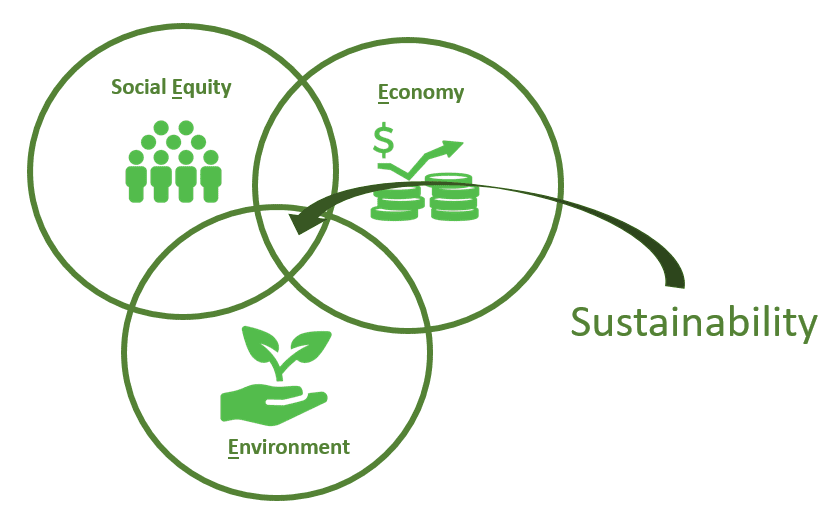Introduction
When people think about climate change they often picture oil giants or massive factories. Very few think about those startups on the corner of their block such as their local coffee shop or their local manufacturer. Yet the Pew Research Center states that small businesses, defined by having 500 employers or fewer, account for 99.9% of U.S. firms and employment of over 56.4 million workers in 2021 (Leppert, 2024). Although their individual footprints seem minimal, when combined, they add significantly to the amount of emissions, energy use, and industrial waste. Subsequently, due to the staggering 33 million small-business firms in the U.S., they hold a large share in the national economy making them undeniable stakeholders in the fight against climate change.
The Hidden Environmental Impact of Small Businesses
Small businesses are often overlooked when navigating the roots of carbon footprints. Many assume that due to their limited size, environmental impact is minimal, however, combined efforts must be accounted for. According to OECD, an international organization that works to build better policies for improved lives, states that small and medium-sized enterprises (SMEs) account for 60-70% of industrial pollution globally (Wildnerova et. al, 2024). From single use packaging to inefficient operational processes, small businesses contribute significantly to environmental degradation. The worst part of it is they often don’t even realize their impacts.
Many states have begun implementing sustainability policies requiring green infrastructure or regenerative energy. However, legislation is often centered around large corporations, ignoring the role of small businesses leading to the missing piece of the climate puzzle.
Climate Change: A Growing Risk for Small Businesses
On the other hand, small businesses are also highly vulnerable to climate disruptions. Climate change has already altered many aspects of the business landscape causing extreme weather events that halt business operations, disrupt supply chains, increase delivery times and costs, and raise energy prices. New regulations are also being implemented, making it a challenge for small firms to keep up. Without having the resources to back up rapid changes, small businesses experience disproportionate risks compared to large corporations. A change that could be a setback for a multinational company could become business-ending for city stores.
Fast Shift of Market Expectations
The base of a successful business is to attract as many consumers as possible. Today’s consumers are beginning to care more about the sustainability of businesses, shifting their purchases towards those that are more “environmentally-friendly.” According to Nielsen, 81% of global consumers believe business should help improve the environment (Fernandez, 2023). In this day in age with social media playing such a prominent role in the younger generation’s life, buying decisions match their values.
Similarly, stakes are high in the business to business front. Because larger corporations are held accountable for the sustainability across their whole supply chains, they prefer to work with small businesses that have green practices. Many create standards that these small businesses must meet in order to receive contracts.
Why Now Matters
Small businesses are the face of our country’s economy, and the base for change in the future. They provide an approach that can skew the way climate change is currently projected, creating opportunities to significantly decrease carbon emissions and harmful waste while simultaneously knitting our communities closer together. This isn’t just the right thing to do but also a strategic move towards resilience, competitiveness, and long-term viability. The survival, influence, and leadership of small business will not only shape the future of commerce, but the health of our planet.
Make a change through Lead Green.
References
NielsenIQ. (2023). Consumer outlook 2023: The unsettled state of global consumers. https://nielseniq.com/global/en/insights/analysis/2023/tl-consumer-outlook-2023-the-unsettled-state-of-global-consumers/
Organisation for Economic Co-operation and Development. (2024). Which SMEs are greening? OECD. https://www.oecd.org/content/dam/oecd/en/publications/reports/2024/07/which-smes-are-greening_ffa14385/ddd00999-en.pdf
Pew Research Center. (2024, April 22). A look at small businesses in the U.S. Pew Research Center. https://www.pewresearch.org/short-reads/2024/04/22/a-look-at-small-businesses-in-the-us/

